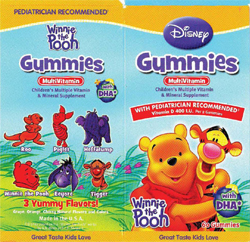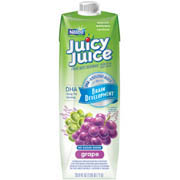I’m on the visionary panel. To register, click here.

In its continuing effort to crack down on companies making deceptive claims that omega-3 promotes healthy brain and eye development in children, the FTC has just announced deceptive advertising charges against NBTY, a marketer of children’s vitamins.
 In February, the FTC issued warning letters to 11 companies that make products like this one (“pediatrician recommended,” yet).
In February, the FTC issued warning letters to 11 companies that make products like this one (“pediatrician recommended,” yet).
The FTC said the companies had better get busy and make sure they are not violating the law by “making baseless claims about how the supplements benefit children’s brain and vision function and development.”
The FTC cautioned the companies to make sure they had:
“scientific evidence to support claims that their products boost, improve, enhance, or support brain and vision function and development in children…[and]claims relating to intelligence, cognitive function, learning ability, focus, mood, memory, attention, concentration, visual acuity, and eye health.”
Now, the FTC has reached a settlement with the companies for $2.1 million in refunds, not only because of the unsupported health claims but also because the products did not contain the advertised amount of omega-3’s (see legal complaint):
the multivitamins featured characters such as the Disney Princesses, Winnie the Pooh, Finding Nemo, and Spider-Man. Product packaging and print ads promoting the vitamins had bold graphics highlighting that the products contained DHA, but in reality, the products allegedly had only a trace amount of DHA.
While the vitamins’ packaging touted the purported health benefits of 100 milligrams of DHA, a daily serving of the Disney and Marvel multivitamins for children ages four years and older contained only one thousandth of that amount (0.1 mg or 100 mcg), according to the FTC’s complaint.
The settlement:
 I wonder if the FTC is taking a look at the DHA “brain development” claims for Nestlé’s Juice Juice? Just a thought.
I wonder if the FTC is taking a look at the DHA “brain development” claims for Nestlé’s Juice Juice? Just a thought.The FTC wants science to back up health claims. What a concept!